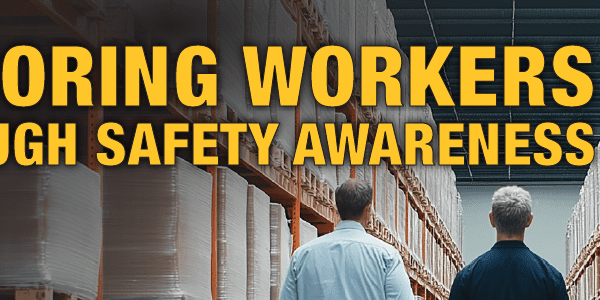Availability of Dangerous Chemicals
Ever since the Oklahoma City bombing, industry has been aware of how criminals may try to obtain hazardous chemicals to create their own improvised weapons. Nowadays, U.S. and Canadian transportation regulations address how to protect chemicals in transport and prevent theft or tampering. Most industrial manufacturing and storage facilities have already implemented security systems and verification procedures for large customers.
But there’s a gaping hole in the system through which criminals can still get their hands on the ingredients they need. Many consumer products openly available in retail stores can be used as easily as industrial supplies to create bombs and poisons, or to be used in the dangerous production of illicit drugs. These purchases are often hard to track, because of the relative anonymity of consumer purchases.
The Chemical Countermeasures Unit (CCU) of the Federal Bureau of Investigation (FBI) is promoting a video on how to recognize suspicious sales of chemicals. The video, titled Suspicious Sales, dramatizes an explosion in an apartment building and the subsequent investigation, done in Law and Order style. Two detectives track down the purchases used to create the bomb based on standard commercial receipts found at the scene of the explosion (our criminal, in this case, having blown himself up by accident in his own apartment).
The chemicals were purchased at a number of stores – a beauty supply store, a hardware store selling pool chemicals, and a gardening depot. In all of them, the staff noticed strange things about the customer, but were unsure what to do about the situation.
The video’s goal is to give retail employees the tools to identify suspicious customers. The creators realize that these purchases are not specifically illegal, but alert employees can help authorities prevent incidents or provide assistance in identifying criminals after an incident.
Employees should be alert to signs of a suspicious sale. These include:
- The customer is unable to answer simple questions about the product’s intended use (or gives vague answers)
- The customer shows unusual preoccupation with the product’s chemical composition (in the video, a sales associate describes the perpetrator’s hunt for pool chemicals containing one specific ingredient)
- The customer is new or unknown
- The customer is reluctant or refuses to show valid identification
- The customer makes large cash purchases, or uses someone else’s credit card
- There is an unusual ordering pattern, such as buying strange quantities (more hair chemicals than a salon would need, for example), out-of-season purchases (such as pool chemicals when most pools are closed) or using a P.O. Box shipping address rather than a home address
So, if you’re a retail employee confronted with a suspicious purchase, what should you do?
- After a suspicious encounter, make notes. Write down as much information as you have been able to gather, such as the person’s name, physical description, license plate number, and the details of the transaction
- Notify your store manager, loss prevention officer or security manager
- If the purchase raises serious concerns, report it to local or federal authorities so it can be investigated further
The FBI and Department of Homeland Security (DHS) have also published a series of flash cards for identifying suspicious customers and providing resources to retail staff. These three cards cover “Suspicious Behavior Awareness,” “Hazardous Chemical Awareness”, and “Peroxide Product Awareness.” They’re available as a free download for printing at The Department of Homeland Security’s TRIPwire website.
It’s an unavoidable fact of modern life that we must, in the words of the Harry Potter character Mad-Eye Moody, practice “constant vigilance” against those who plan to use chemicals to hurt others. Salespersons, cashiers, sales assistants, and other employees of retail outlets can help just as people in industrial settings to ensure that hazardous chemicals are kept out of the hands of criminals. Employers must also do their part by establishing internal procedures for reporting suspicious activities, and encouraging staff to “trust their gut” about suspicious customers, as the video advises
To obtain a free DVD of this video, you can e-mail the FBI at [email protected], with complete contact information (name, title, store name or organization, street address, and phone number.) Or you can view it on YouTube:
If you have questions about hazardous chemical security regulations and how they can affect your operations, please contact us here at ICC The Compliance Center at 1-888-442-9628 (USA) or 1-888-977-44834 (Canada).





